|
SYNOPSIS:
After her husband’s confession of having an affair,
Yeon finds herself heading towards the prison to meet a condemned
criminal Jin who repeatedly attempted suicide. She doesn’t
know why, but Yeon meets Jin and treats him like an old friend.
Jin doesn’t open up to her that easily at first. While
Yeon brings spring, summer and autumn to Jin in the prison,
they fall for each other. But Jin’s clock is ticking
away, and Yeon doesn’t want to send him away like that.
MOVIE
REVIEW
Let’s
put it this way, Director Kim Ki-Duk’s films are generally
not meant for the mass consumption. Recently he was so upset
with the low Korean attendance for his films that he threatened
to stop releasing his films in Korea unless Time
(his previous work, Film No.13 ) was attended by at least
200,000 people. In the end, it only managed 30,000 tickets
sold. The director relented that there are diehard fans in
Korea to care for and chose to not to go through with his
threats, thus releasing Breath in Korea.
There
are a few reasons why Director Kim Ki-Duk’s films are
not so commercially viable but due to the lack of space in
this review page, we will only focus on one. The most noticeable
reason being is that his films are filled with symbolism and
is pretty much open to each individual interpretation. Even
my fellow colleague in Moviexclusive who studiously watches
every single movie that opens in Singapore was not tolerant
to such film making, calling this latest flick from Kim Ki-Duk
a “time waster” and “calling out that the
Emperor is naked”.
Upon
reviewing it, it was quite puzzling why it had went down my
colleague’s list of bad movies that inspire him to be
a director and the thumb downs from Kim Ki-Duk fans who mostly
unfavorably compared this to 3-Iron.
While I am not able to dwell into deep explanation on why
Breath is good as some arty farty folks can, I can share with
you why Breath is so good in my book that it’s a contender
for my top ten movies in 2008.
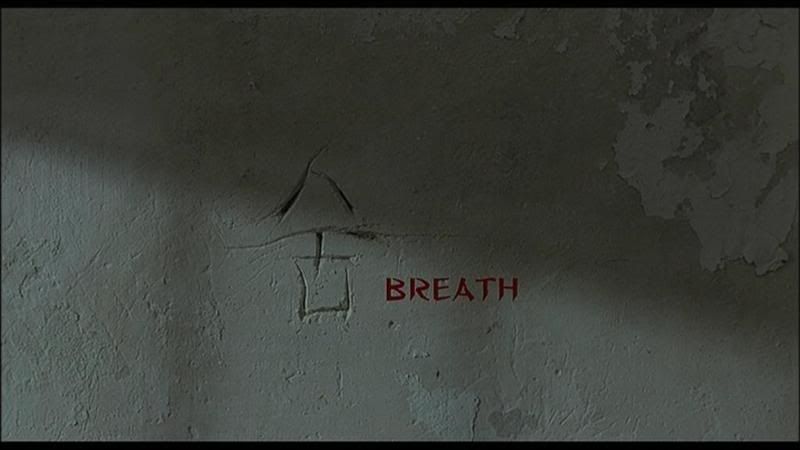
Breath
is an inexplicitly conducive piece of movie making that fosters
thinking about the different facades of love, particularity
the darker aspect of love such as betrayal, alienation and
even sacrifices. Such as Yeon (Zia)’s unfathomable behavior
which some might call it crazy but with a little thoughts
put in, one could feel her pain that is derived from her husband’s
infidelity. It’s subtly work on but with some prior
knowledge and perhaps some experience in such life’s
despairing moments, it’s easy to understand Yeon’s
need to break out of normalcy. Yeon reaching out and relating
to a death bound prisoner, Jin (Chang Chen) who is seeking
suicide, was probably a reflection of her own deep dark desire
to end her own suffering.
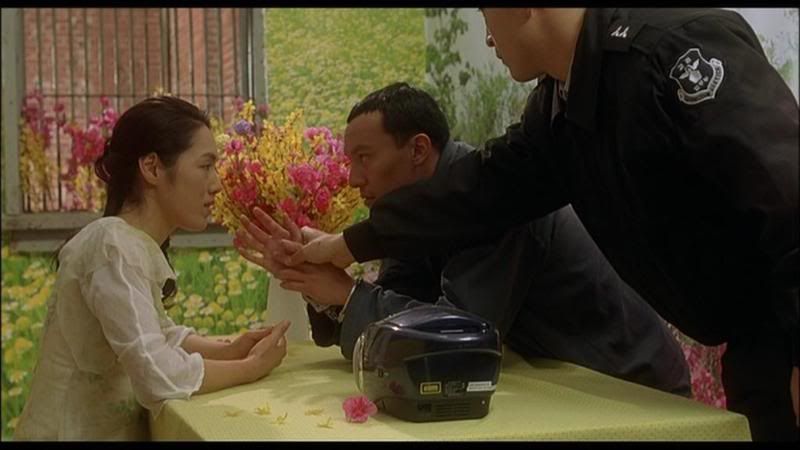
Sharing
that strange connection in the most pressing of times, a strange
love affair blossom between Yeon and Jin. It makes one wonder
if it was really love or just an excuse for Yeon to get back
at her cheating husband. From one point of view, Yeon’s
feelings for her husband had died and no matter how her husband
mend his ways or pacify her, it’s impossible for her
find her love for her husband once more. <Spoiler Starts>
thought was a clever move, the filmmaker
created a chance at rebirth of emotions, in which Yeon attempt
a suicide with Jin by cutting off both of their air supply.
It might seem like a weak attempt but my interpretation was
that it metaphorically it symbolized Yeon releasing the burden
that she been carrying. Once she gone through the experience
of death with her current love, she is free to fall in love
with her husband once again. It was hinted though out the
show that she had always love her husband but could not find
a way to forgive him and in my point of view, Jin was rebound
case that she truly fell for <Spoiler Ends>.
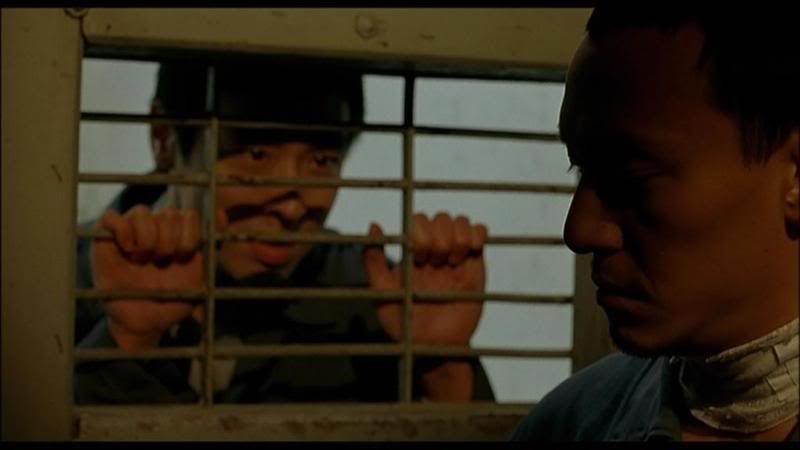
In another aspect, it shows how cruel love
could be. This show exemplifies the selfishness of man’s
love. For Jin, this twisted relationship became the only thing
that kept him going in a world that he was ready to abandon.
<Spoiler
Starts> In an ironic
twist, Jin’s initially suicide was to end his misery
and Jeon’s interference in his life had actually caused
him to attempt suicide to call out to her, prolonging his
time in this world <Spoiler Ends>.
The most poetic part of this film was how Jin who had nothing
to live for and in mere moments to his scheduled death, had
something to pine for. In my opinion, that gift that Yeon
gave to the dying Jin was more cruel than the death sentence
itself.
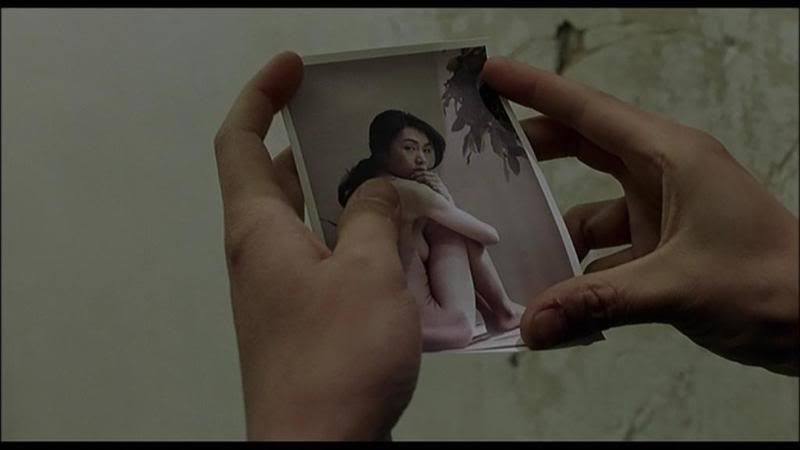
There are more of such subtle moments that speak volume about
the emotions of love in a very constrain mode but I will leave
it to the viewers to discover it for themselves. Director
Kim Ki-Duk had succeeded here by leaving just enough material
for those aggressive movie watchers to fill in the blanks.
Not too much to overwhelm but just enough to encourage viewers
to feel more for these various characters that gotten involved
in this peculiar affair.
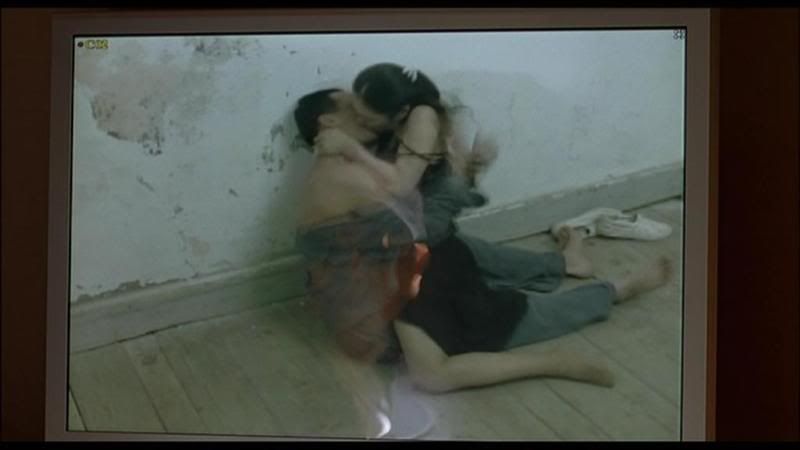
His involvement in this film was not restricted to the directing
duties as he appears as the voyeuristic prison warden. Parallelism
between his roles and duties as director shouldn’t be
too hard to pick. His “god like” power over the
confine span of area and inquisitiveness to see what will
the dramatics between Yeon and Jin will pan out was a nice
touch to the film.
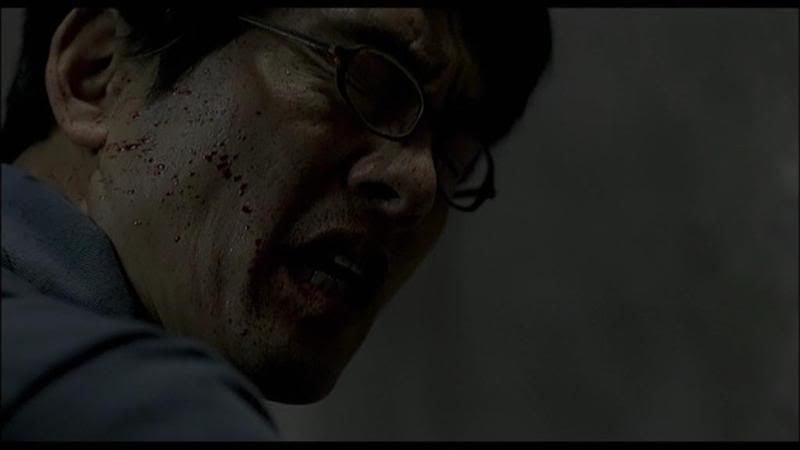
Another equally ingenuity move was how Breath gotten over
Chang Chen’s language barrier. Unlike some films that
had actors attempting to speak in foreign language and coming
off sounding awful in the process, Breath cuts to the chase
and gave an effective reason why Taiwanese actor, Chang Chen
won’t be attempting to speak in Korean. This enables
the viewers to focus on his acting and Breath is a prime example
how actors from different nation could come together for a
great performance.
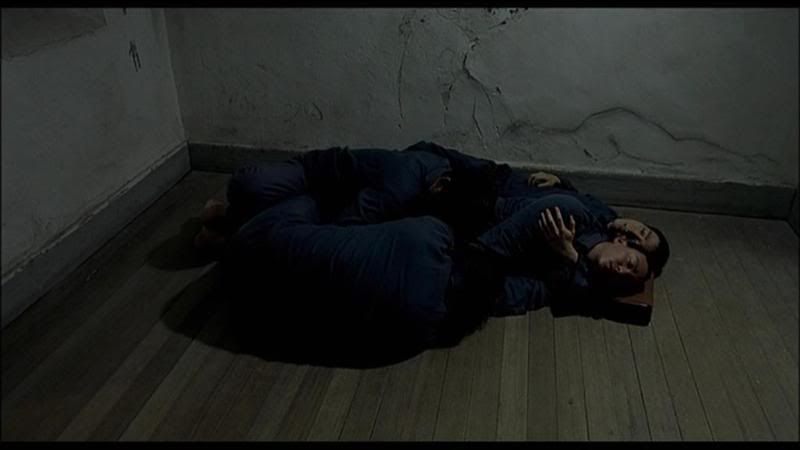
Initially I had a hard time gasping the reasons for Kim Ki-Duk
films to be so popular in the festival circuits. There are
relatively low budget with relatively unknown cast (at least
to this part of the world) and are filled with symbolisms
that is pretty much open to each individual interpretation
(which means could be a frustrating time). But slowly with
exposure to his “Spring
Summer Fall Winter .. Spring”, Time and Breath in
a leisurely pace and mood (thanks to the Dvd releases), its
beginning to be obvious why he is hailed as a director to
look out for and in such relaxed mode, it’s easier to
appreciate his ingenuity in filmmaking.
SPECIAL FEATURES :
NIL.
AUDIO/VISUAL:

This
film is presented in 16 x 9 widescreen with amazing display
of the cinematography. It comes with Dolby Digital 2.0 in
Korean and there changeable English and Chinese subtitles
.
MOVIE
RATING:
   
DVD
RATING :
NIL
Review
by Richard Lim Jr
|









